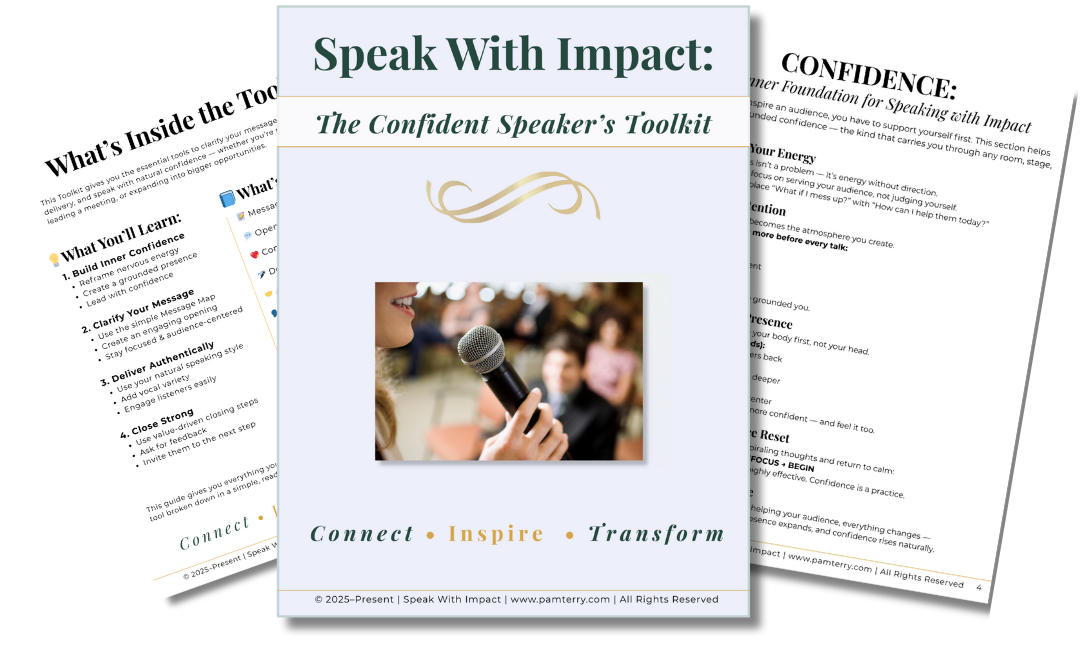Public speaking can be a nerve-wracking experience for many individuals. Whether it's presenting in front of a large audience or speaking up during a meeting, the fear of being judged or making mistakes can trigger nervousness. However, with the right strategies and mindset, you can effectively manage and overcome these jitters. In this blog post, we will explore some valuable strategies for handling nervousness before and during a speech, accompanied by examples from famous individuals who have conquered their own public speaking fears.
~ Michael Caine
"The best way to conquer stage fright is to know what you're doing."
PREPARE THOROUGHLY. One of the most effective strategies to combat nervousness is thorough preparation. When you are well-prepared, you gain confidence in your knowledge and ability to deliver your speech. Take the time to research, organize your thoughts, and practice your presentation multiple times. This preparation allows you to anticipate questions, transitions, and key points, minimizing the chances of feeling overwhelmed by nervousness.
EXAMPLE: Abraham Lincoln, one of the greatest orators in history, overcame his speech anxiety through meticulous preparation. Before delivering his iconic Gettysburg Address, Lincoln extensively researched the history of the place and the significance of the occasion. His preparation enabled him to deliver a concise and powerful speech that resonates even today.
~ Robert Collier
"Visualize this thing that you want, see it, feel it, believe in it. Make your mental blueprint, and begin to build."
VISUALIZE SUCCESS. Visualizing success can be a powerful technique to combat nervousness. Close your eyes and imagine yourself delivering a successful speech with confidence and poise. Focus on the positive outcome and the impact your words will have on the audience. By visualizing success, you condition your mind to believe in your abilities, reducing anxiety and boosting self-assurance.
EXAMPLE: Oprah Winfrey, the renowned television host and philanthropist, incorporates visualization techniques to overcome her stage fright. Before each episode of her talk show, Oprah visualizes engaging with her audience, delivering her message effectively, and receiving a positive response. This practice has helped her become one of the most influential and confident speakers of our time.
~ Unknown
"When you own your breath, nobody can steal your peace."
CONTROL YOUR BREATHING. Deep breathing exercises are a simple yet powerful technique to manage nervousness during a speech. Take slow, deep breaths to calm your body and mind. Inhale deeply through your nose, hold the breath for a few seconds, and exhale slowly through your mouth. This technique promotes relaxation, reduces anxiety, and allows you to maintain a steady and controlled speaking pace.
EXAMPLE: Winston Churchill, the iconic British statesman, employed breathing techniques to overcome his nervousness when addressing the public. He consciously regulated his breathing, taking deliberate pauses between sentences, which not only added emphasis to his words but also helped him maintain composure during high-pressure situations.
~ Theodore Roosevelt
"Believe you can and you're halfway there."
EMBRACE POSITIVE SELF-TALK: Positive self-talk can help reframe your mindset and build confidence. Replace negative thoughts such as "I'm going to mess up" with positive affirmations like "I am well-prepared and capable of delivering an impactful speech." Remind yourself of past successes and focus on your strengths. Embracing positive self-talk can shift your perspective and empower you to overcome nervousness.
EXAMPLE: Sheryl Sandberg, the Chief Operating Officer of Facebook, advocates for positive self-talk to combat stage fright. She encourages individuals to acknowledge their fears and then counteract them with positive statements such as "I am excited to share my ideas" or "I have valuable insights to offer." By adopting this mindset, Sandberg has delivered influential speeches that inspire and motivate others.
~ MANDY HALE
"Sometimes the most powerful thing you can say is nothing at all."
EMBRACE THE POWER OF PAUSE: Even seasoned speakers who are well-prepared may experience moments of nervousness during their speech. In such situations, embracing the power of pause can be an effective strategy to regain composure and control. Instead of panicking or rushing through the speech, take a brief pause to collect your thoughts and regain focus. Allow yourself a moment of silence to breathe, gather your thoughts, and reset your energy.
EXAMPLE: Sir Ken Robinson, a renowned educator and speaker, understood the value of pause during a speech. In his famous TED Talk on "Do Schools Kill Creativity," he expertly used pauses to emphasize key points and create suspense. These intentional pauses not only allowed him to manage his nerves but also added impact and engaged the audience on a deeper level.
~ eleanor roosevelt
"You gain strength, courage, and confidence by every experience in which you really stop to look fear in the face. You must do the thing you think you cannot do."
Public speaking nerves are common, even among famous individuals who have mastered the art of effective communication. By implementing strategies like thorough preparation, visualization, controlled breathing, and positive self-talk, you can overcome your own nervousness and deliver impactful speeches. Remember, it's not about being flawless; it's about connecting with your audience and sharing your message authentically. As Eleanor Roosevelt once said, "Embrace the challenge, face your fears, and let your voice be heard."
When nervousness strikes during your speech, remember these tips:
Shift your focus to your audience:
Instead of dwelling on your nervousness, redirect your attention to your audience. Remind yourself that you are there to serve them, share valuable insights, or inspire. By shifting your focus outward, you can channel your energy into connecting with your listeners and delivering a meaningful message.
Engage with body language:
Your body language plays a crucial role in managing nervousness. Stand tall, maintain eye contact, and use expressive gestures to convey confidence. Even if you feel nervous inside, projecting a composed and confident demeanor through your body language can help alleviate anxiety and create a positive impression. The more you use this technique, the more confident you can be.
Practice mindfulness techniques:
Incorporate mindfulness techniques into your speaking routine. Prior to your speech, take a few moments to engage in deep breathing exercises or mindfulness meditation. These practices can help calm your mind, center your thoughts, and promote a sense of groundedness, enabling you to navigate moments of nervousness more effectively.
Embrace imperfections:
Remember that imperfections are a part of being human. Embrace the idea that it's okay to stumble or make minor mistakes during your speech. Audiences are often more forgiving and understanding than we perceive them to be. Focus on delivering your message with authenticity and passion, rather than striving for perfection.
Remember, nervousness is a natural response, and many accomplished speakers have experienced it. The key lies in adopting strategies that work for you, remaining authentic, and focusing on the value you bring to your audience. So, embrace your nerves, acknowledge their presence, and let your passion and expertise shine through.
~ MARK TWAIN
"There are two types of speakers: those who get nervous and those who are liars."
I hope you've found these tips on handling nervousness before and during a speech valuable. Remember, nervousness is a natural part of the process, but it doesn't have to hold you back. By implementing these strategies, you can harness that energy and transform it into an empowering force that propels you towards success.
I'd love to hear from you now. Have you faced nerve-wracking speaking experiences? How did you conquer your anxieties, or do you still find it challenging? Maybe you have some unique tips and tricks that others could benefit from? Whether you're an experienced speaker or a novice taking your first steps, your story matters.
Share your thoughts, experiences, and any additional advice in the comments section below. Let's build a supportive community where we can all learn from each other and inspire confidence in our public speaking endeavors.
Remember, the journey to confident and impactful speaking is ongoing, but together, we can transform fear into excitement and self-doubt into empowerment. Your voice matters, so don't hesitate to join the conversation!
Keep speaking with passion, purpose, and poise. You've got this!



